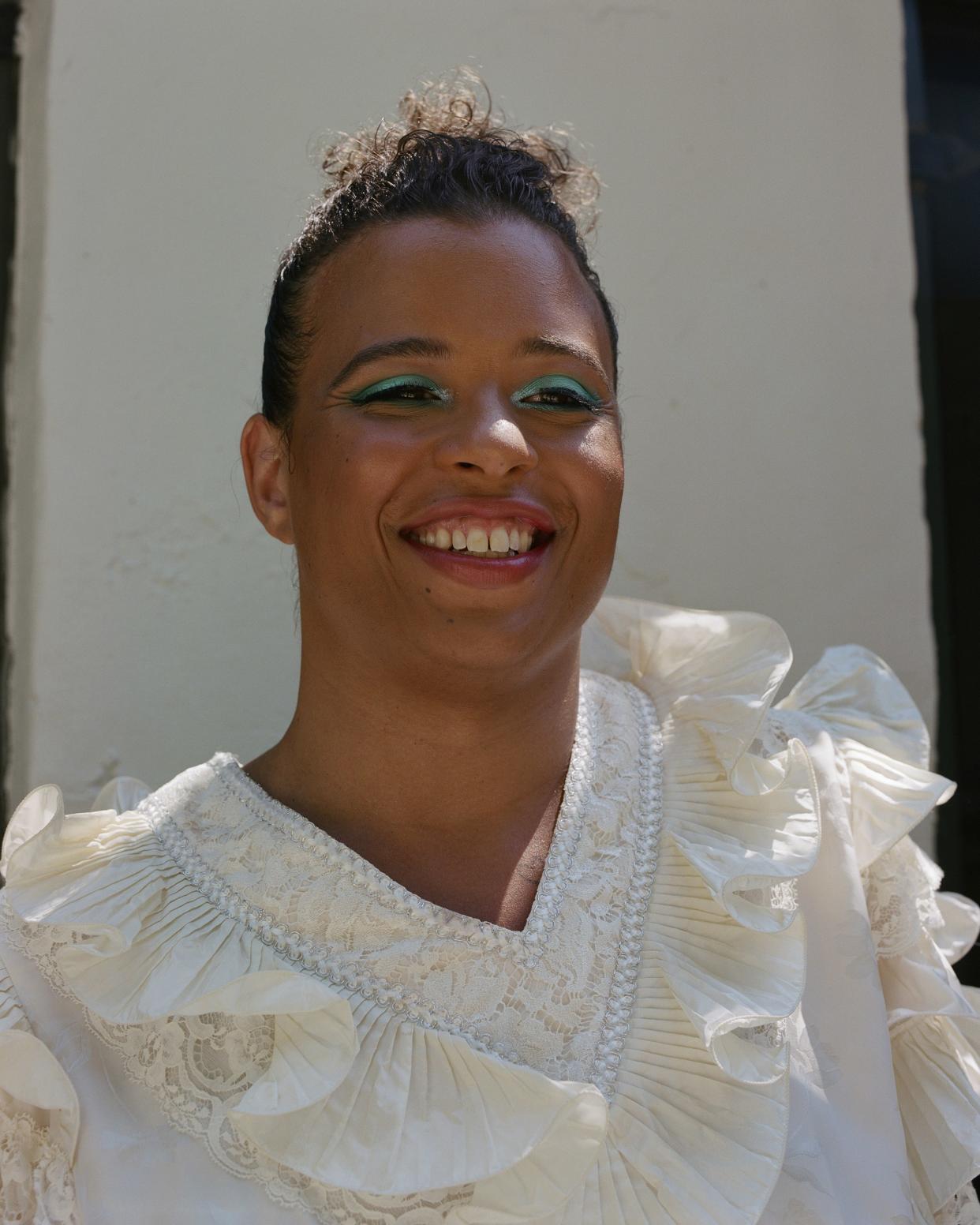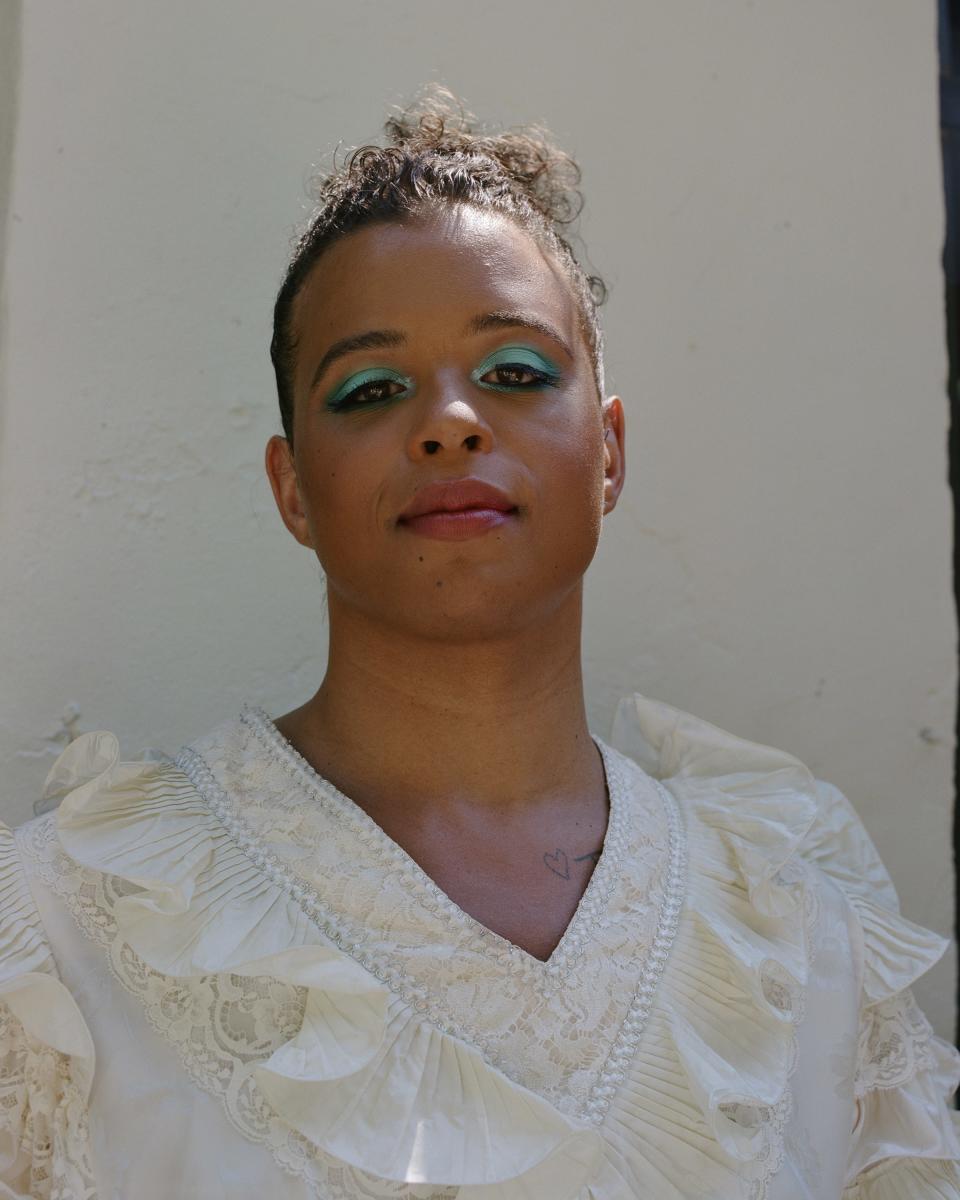Sylvia Rivera and Marsha P. Johnson’s Fight to Free Incarcerated Trans Women of Color Is Far From Over

I moved to New York in 2002 and had avoided the pride parade because I felt people of color were not particularly welcomed.
But then in 2005 I took part in a march, not a parade. It strode through the West Village chanting “We’re Here, We’re Queer, We’re Fabulous, Don’t Fuck With Us!” My whole self came alive having found a community I had spent years searching for.
It was the first-ever Trans Day of Action, organized by Trans Justice of the Audre Lorde Project and highlight issues facing trans and gender nonconforming people of color in New York City. It started at a small park on 8th Avenue and went all the way to Union Square.
At the same time as this profound realization of finding my community moved through me, I experienced first hand how the residents of that neighborhood were organizing against young low-income LGBT people of color; the same community of people who helped give the West Village a name and identity as a queer space 50 years ago with the Stonewall Rebellion were being targeted and policed. At the time young people of color who queer, trans and non binary people were organizing against a 1 am curfew on the Christopher Street piers there was a heavy police presence and residents at community boards frequently complained about queer & trans young people of color in the neighborhood.

As I was getting more involved in the organizing around the Trans Day of Action, I kept hearing about how a trans woman named Sylvia Rivera had lived in an encampment on the Christopher Street pier in the mid-90s, and how she was supportive of the young people organizing against police surveillance and resident antagonism in 2000. I remember asking people who knew her if this was the same Sylvia Rivera who helped lead the Stonewall Rebellion in 1969, and when learning that it was, being in awe at the span of time that she dedicated to activism. I was filled with inspiration and filled with questions. Something about her life made my own feel validated. I was a young trans activist organizing against police and prison violence.
A few years ago I took the PATH train to Hoboken with my artistic collaborator, Sasha Wortzel, to interview Randy Wicker for a film we are making about Sylvia Rivera. Randy, who befriended Rivera and lived with her for several years, is one of the few surviving members of Mattachine Society, an early queer radical organizing group. His apartment in Hoboken is an archival space containing vital history, from the photographs on his refrigerator door to pieces held in the clothes adorning the wall. Most of it, Randy passes to you through stories.
When I think about how Randy shares history through storytelling, I was reminded of the many trans people who would have been elders had they been alive today. I wished to hear stories directly from people like Marsha “Pay It No Mind” Johnson, a revolutionary who was among the first to fight back against the racist and homophobic police at Stonewall, who Randy also lived with for years, and who was a close friend of Sylvia’s.
After occupying Weinstein Hall at New York University for nearly a week in response to its homophobic policies, Marsha helped form STAR: Street Transvestite Action Revolutionaries. Marsha traded sex for money and organized with other people in the sex trade in New York City’s Times Square and West Village. She galvanized people from inside jails and prisons, and created homes for them at STAR House in Manhattan’s Lower East Side even after her husband was murdered by an off-duty NYPD officer. She was an incredible performer, touring with the performance group Hot Peaches. As an HIV positive person, she organized AIDS vigils, navigated mental illness, and was a mother to a generation of trans and gender nonconforming people in New York City. She was also one of many Black trans people to be found dead, in her case, in the Hudson River after Gay Pride in 1992.
Marsha’s story forces me to confront the physical violence that stops some trans women from ever becoming elders. This historical violence elevates some lives, names them as important to know through their tragic deaths, while erasing the lives and legacies of others. I think the historical erasure of her happened in a way that to me feels similar to the attempted erasure of black lives from the days of the Middle Passage and chattel slavery. Marsha would be 73 and Sylvia would have been 67 if they were still alive today.
Whether it knows it or not, the LGBTQ movement owes a huge debt to this history created by a long legacy of people who identified as drag queens, drag kings, transvestites, cross dressers, genderqueer, and those who move between. Those who evolve their language for their gender identity and gender expression in ways that are confrontational, provocative, and humor-filled.
As Sylvia put it in an 1992 interview with Randy Wicker on the Christopher Street Pier, Marsha P. Johnson, Bubbles Rose Marie, and other street queens catalyzed the movement for gay liberation only to be violently kicked out and exiled, “when drag queens were no longer needed in the movement!”
Marsha P. Johnson laid out a clear freedom dream during her interview “RAPPING WITH A STREET TRANSVESTITE REVOLUTIONARY” in 1973:
"STAR is a very revolutionary group. We believe in picking up the gun, starting a revolution if necessary. Our main goal is to see gay people liberated and free…We’d like to see our gay brothers and sisters out of jail and on the streets again. There are a lot of gay transvestites who have been in jail for no reason at all, and the reason why they don’t get out is they can’t get a lawyer or bail."
And Marsha had concrete strategies to achieve those goals:
"I would like to see STAR with a big bank account like we had before, and I’d like to see that STAR home again…We’re going to be doing STAR dances, open a new STAR home, a STAR telephone, 24 hours a day, a STAR recreation center. But this is after our bank account is pretty well together. And plus we’re going to have a bail fund for every transvestite that’s arrested, to see they get out on bail, and see if we can get a STAR lawyer to help transvestites in court."
Today, in an abundance of ways many of us strive to hold Marsha’s bold freedom dream. Countless individuals share online fundraisers for surgery support, housing costs, food and other basic survival needs. Every day Black Trans Media, for instance, lifts up individual fundraisers to support people to giving directly to those who need it now. The Black Trans Travel Fund pays for rides for Black trans women in New York & New Jersey. The Okra Project provides free fresh cooked meals to Black Trans & GNC people.
After at least 5 black trans women were killed this pride month, including Layleen Polanco who was found dead in Rikers Island, we come together in outrage, reminding the world in the words of Micah Bazant, there’s no pride for some of us without liberation for all of us.
We have moments of joy too. My friend and mentor Miss Major, a Black trans elder who took part in the Stonewall rebellion, continues Marsha’s legacy through her work with The Griffin-Gracy Educational Retreat & Historical Center—a.k.a. “House of GG”—the first educational and historical center solely dedicated to Transgender and gender nonconforming people in the USA.
Just recently, Decrim NY’s organizing has prompted a bill in New York to decriminalize sex work. This would further Marsha’s vision and would vastly improve the lives of many people in the sex trades, especially trans women of color.
We can all contribute to Marsha’s vision. Check out your local bail fund and here are a few of the many important orgs to research and support.
The Lorena Borjas Fund works to address the problem Marsha P. Johnson named of not being able to get out of jail because you can’t afford bail or a lawyer.
The Marsha P Johnson Institute officially launched last week works to end violence against black trans women across the United States.
Rainbow Defense Fund DBA Mariposas Sin Fronteras seeks to end the systemic violence and abuse of LGBTQ people held in prison and immigration detention. They envision a society that no longer finds solutions in the system of immigration detention or the prison industrial complex.
Through leadership development, capacity building, and organizing, the Black LGBTQIA+ Migrant Project (BLMP) addresses the ways in which our community is targeted by the criminal law and immigration enforcement system, and marginalized in the broader migrant community, and racial and economic justice movements.
Every day we are out here. Hustling and taking care of each other. We do this work to build strong communities and support each other. We do this work with Marsha’s spirit to build an even stronger self-determination movement that we can all make home.
Tourmaline is an activist, filmmaker, and writer. Her work highlights the capacity of Black queer and trans people and communities to make and transform worlds. In her films, Tourmaline creates dreamlike portraits of people whose stories tell the history of New York City, including gay and trans liberation activists, drag queens, and queer icons Marsha P. Johnson and Sylvia Rivera (Happy Birthday Marsha, co-directed with Sasha Wortzel, 2018), Miss Major (The Personal Things, 2016), and Egyptt LaBeija (Atlantic is a Sea of Bones, 2017). Tending to the histories and haunts of disabled, poor, Black, queer, and trans life that echo and vibrate beneath neighborhoods and cultural landmarks, Tourmaline’s films undulate between narrative and non-narrative and illuminate the mundane acts that form the fabric of historical events and mutually supportive communities.
She received a BA from Columbia University and is the recipient of the 2018 Publishing Triangle Award, Special Mention at 2018 Outfest Film Festival, 2017 HBO & Queer/Art Prize and 2016 Art Matters Foundation Grant. From 2014-2018 she was Barnard College Research On Women’s activist in resident. Her work has been presented across the world including at the Museum of Modern Art (2019), the Brooklyn Museum (2016, 2019), and MoMA PS1 (2019), among others.
Tourmaline in a Gucci top.
Photography by June Canedo
Hair by Ro Morgan
Makeup by Raisa Flowers
Fashion Editor Anny Choi
Originally Appeared on Vogue

